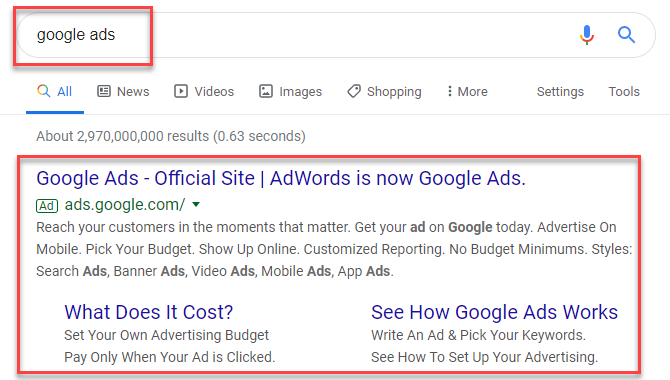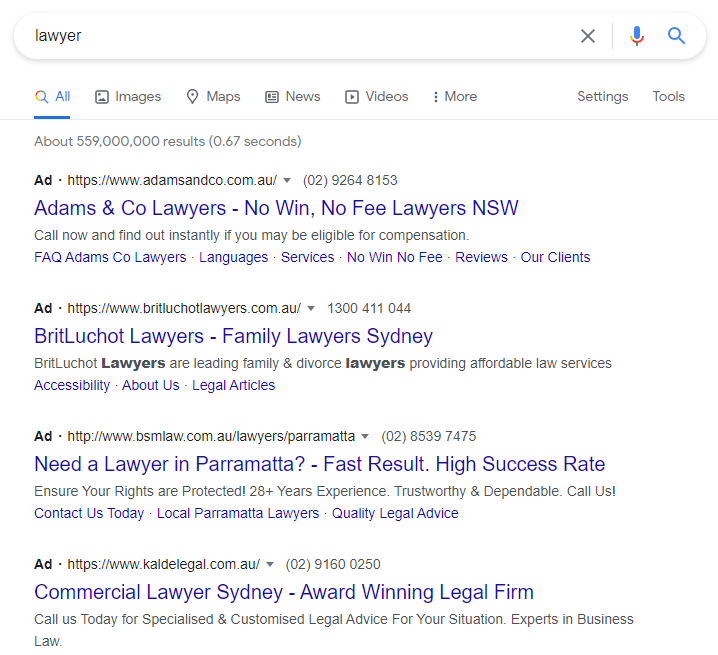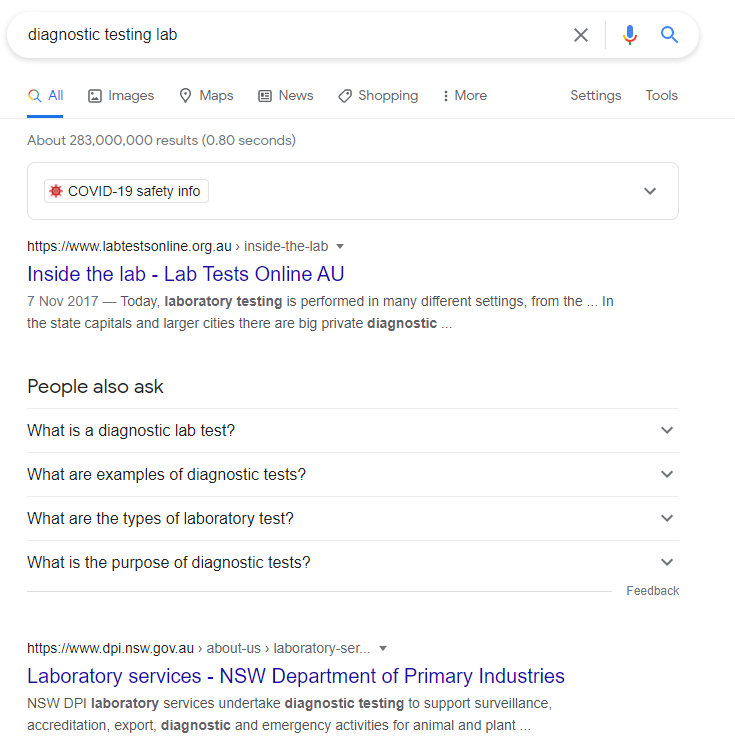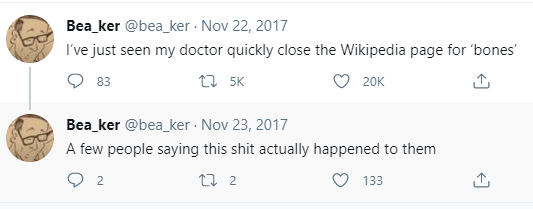Julian Bright of Orchard’s Strategy team explains how Search Engine Marketing can be used to advertise to niche audience groups.
Search Engine Marketing (SEM) refers to the paid listings that appear on search engine results pages. The ad copy is targeted depending on the search term. In Australia, the majority of these ads are purchased through Google and appear as shown below.

1 in 20 users will click on a paid listing ad when they appear on the results page. With around 6 billion searches per day worldwide, SEM drives hundreds of millions of users to advertiser websites every single day.
In the digital advertising landscape, search engine audiences have very high intent, as they are literally searching for your product (or something relevant to it). Displaying a clear ad in front of a primed audience is far more likely to drive conversion than a feed ad in front of an audience on a social platform where they are engaging for other purposes.
Due to high volume and intent, SEM is a drug marketers around the world cannot get enough of. Some terms have enormous search volume and SEM competition, such as ‘Lawyer’, which can drive a staggering cost per click of over $50:

Brands that often shy away from the party are those offering niche or highly specialised products. For instance, health brands are often unsure of whether their target health care professionals are using search engines in high enough volume to warrant running SEM. This may be one of the reasons even competitive niche health fields such as ‘diagnostic testing lab’, currently display no paid search results:

Whenever I hear that these professionals aren’t targetable by SEM I remember this tweet:

Doctors use search engines too! No matter how professional or specialised, I’m certain everyone has a sneaky Google on something after professing to understand it in a meeting. However, depending on the scope of your audience you need to develop tactics to ensure you are hitting them efficiently and effectively. So, here are a few thoughts on niche products targeting SEM:
- Small volume can be quality volume. Looking at the Google Search forecast tool for some niche health brands, I can confirm that users — who are likely health care professionals — are searching for complex Latin terms to do with some random rare conditions, it’s just the volume isn’t very high. However, by developing a large, specific keyword list, you can capture the cumulative volume of thousands of niche search terms. This may only account for 100 impressions per month but if this turns out to be 100 of the highest intent users for your product online, it could be worth significantly more than 500,000 broad targeted Facebook or LinkedIn impressions.
- You only ever pay for the traffic you receive. This is one of the eternally beautiful concepts of SEM, you only pay when someone actually clicks on your ad. This means if you target an enormous keyword list of niche highly relevant terms, the greatest risk is that you will spend $0. As opposed to display banner ads or social marketing where you risk buying millions of impressions with no clicks.
- There is less competition on niche products. The majority of niche products I have developed SEM campaigns for have had little or usually no competition due to the specificity of the keywords. This drives down the cost per click and means your ads are far more likely to be clicked on by users who visit the page.
- It can aid when you don’t have an organic search presence. Often niche brands have covered their broader or more common search terms with organic search listings but may struggle to gain traction on the thousands of highly specific terms relevant to them. Once again, this is true for health brands who need to cover all the variations of the keywords that exist for the conditions they are targeting. SEM can help by quickly giving you a listing on these hard-to-reach search terms. Additionally, SEM can be utilised in the interim whilst organic search strategies are being implemented.
- Start wide, go narrow. Once you have run an enormous keyword list on highly specific terms, it is likely you identify a handful of keywords that drive the majority of your business KPIs. These core terms can then be segmented and harness via budget and ad-copy, in order to drive optimal results. Additionally, your core keywords can potentially provide insights into your target audience’s thinking, online behaviour, desires, and needs.
SEM is one of the many ways that Orchard helps brands find and target their niche audiences. Come and have a chat with the Orchard Strategy Team if you are searching for new avenues to way to reach your niche customer base.

